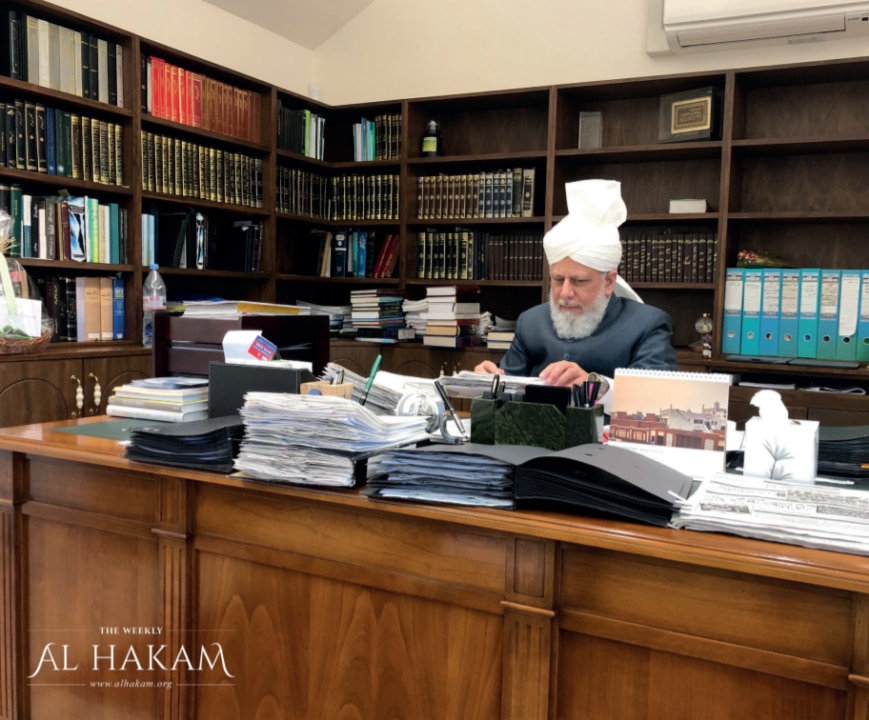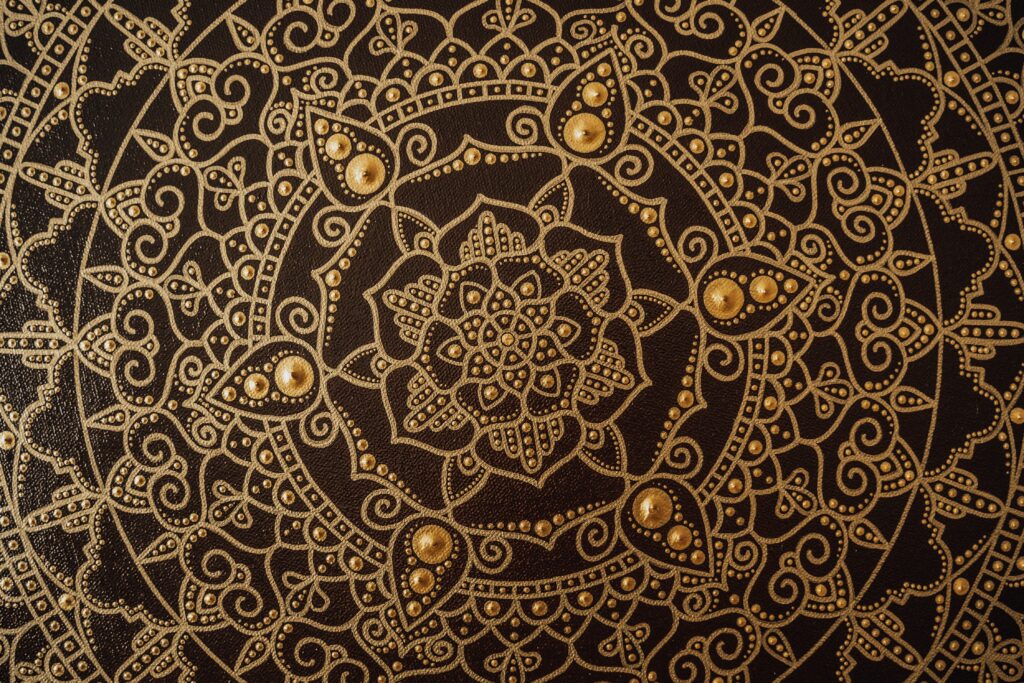Guidance regarding basic Islamic issues – which Hazrat Amirul Momineen, Khalifatul Masih Vaa has given on various occasions in his written correspondence and during MTA programmes – is being officially published below for everyone’s benefit

Arab naming culture
[…] Someone wrote to Hazrat Amirul Momineen, Khalifatul Masih Vaa [in Urdu] that the Holy Prophetsa had asked Hazrat Fatimara about Hazrat Alira ‘Where is the son of your chacha [paternal uncle]?’ Similarly, the Holy Prophetsa had used the word chacha for Hazrat Abbasra and Hazrat Abu Talib. Moreover, Hazrat Alira had used the word chachi [wife of the paternal uncle] for Hazrat Khadijara. The person then requested Huzooraa for an explanation for the usage of this word. Huzoor-e-Anwaraa, in his letter dated 13 December 2020, gave the following reply to this question:
“Every society has some customs and idioms for everyday use, which can only be understood by keeping the context of that society before us. Hence, in some families, according to the family’s customs or idioms, the father’s relationship with a person is also used to refer to the children. Since Hazrat Alira was the son of the Holy Prophet’ssa paternal uncle, according to the prevalent social custom, the Holy Prophetsa asked his daughter, ‘Where is your uncle’s son?’
Moreover, in Arabia, it was a common practice to use the phrase
يَا ابْنَ أَخِيّ or يَا ابْنَ عَمِّ
i.e. ‘O the son of my uncle’ or ‘O the son of my brother’ etc. and this practice exists to this day. Hence, an older person may use the phrase
يَا ابْنَ اخِي
meaning ‘O the son of my brother’ to address a younger person and similarly a wife may use the words
يَا ابْنَ عَمِّ
meaning ‘O the son of my uncle’ instead of calling her husband by his name.
As far as Hazrat Ali’sra use of the word chachi [paternal uncle’s wife] for Hazrat Khadijara is concerned, in Arabic the word ‘amati is used for both phuphi [paternal aunt] and chachi [paternal uncle’s wife]. It seems that you may have read the word ‘amati somewhere and translated it [into Urdu] as chachi whereas the translation of this word would be phuphi with reference to Hazrat Khadijara and Hazrat Alira because Hazrat Khadijara and Hazrat Abu Talibra share a common patrilineal ancestor in Qusay bin Kilab in the fifth generation before them. Therefore, Hazrat Khadijara is the paternal aunt of Hazrat Alira in terms of the relationship.”
Reacting to an opponent’s death
Someone wrote to Hazrat Amirul Momineen, Khalifatul Masih Vaa that some people had reacted to the death of his cousin in an inappropriate manner, which had deeply hurt him. He also asked Huzooraa whether the Holy Quran forbade us from praying for a relative who died while opposing Islam. Huzoor-e-Anwaraa, in a letter dated 13 December 2020, provided the following guidance on this issue:
“If any Ahmadi has shown any inappropriate behaviour upon the death of your cousin then surely they have acted in a wrong way. After the death of a human being, their case rests with God alone who can deal with them however He desires. No one else has the right to form a judgement about them. The Promised Messiahas, explaining this, says:
‘Every person has a separate account with God. Thus, everyone should examine and reform his actions. The death of others should serve as a lesson for you lest you stumble instead of causing you to spend that time in laughter and mockery and thereby becoming more oblivious to God Almighty.’ (Malfuzat, Vol. 3, p. 217)
As you have referenced Abid Khan Sahib’s diary in your letter, so, you would have already read my answer that we cannot call it any kind of divine sign because neither was there any ongoing [prayer] duel between your cousin and Jamaat-e-Ahmadiyya, nor had he challenged the Community so as to consider it a duel.
Islam does not teach hatred towards any human being but expresses dislike towards certain actions. Therefore, in the Holy Quran, Hazrat Lutas, while addressing his opponents, said, ‘Certainly I hate your practice.’ (Surah ash-Shu‘ara, Ch.26, V.169) Similarly, Allah has commanded the believers that when they hear the Signs of Allah being mocked at, not to sit with the mocking people as long as they are engaged in such mockery. (Surah an-Nisa, Ch.4: V.141) In other words, we have been instructed not to hate people but rather to express disgust about their actions.
Thus, the teaching of Islam is complete and beautiful in every respect. Islam does not teach to rejoice in the death of even the most hostile enemy. Rather, a true believer is saddened even by such a person’s death because he wishes he had been guided. Pandit Lekhram was an enemy of Islam and the most belligerent foe of Ahmadiyyat. He had slandered the most sacred being of our Master and Guide, the Holy Prophet Muhammadsa, the Chosen One. When he was killed in accordance to divine prophecies, the Promised Messiahas expressed his sympathy with the people of his nation over his death and said:
‘We are saddened by the loss of a human’s life but also pleased by the fulfilment of a prophecy of God. Why are we pleased? Only for the good of nations: Would that they contemplated and understood that it is not man’s work to prophecy many years in advance with this high level of accuracy and clarity. Our heart is in a strange state at the moment; there is pain as well as happiness. There is pain because had Lekhram turned [to God]; if not much then had he only desisted cursing, then I swear by Allah the Exalted that I would have prayed for him and I hoped that even if he had been cut to pieces, he would still have come to life.’ (Siraj-e-Munir, Ruhani Khazain, Vol. 12, p. 28)
As far as praying for a person who dies while opposing Islam is concerned, Islam only forbids praying for forgiveness for a mushrik who is openly hostile to God Almighty. It does not forbid praying for anyone else. (Surah at-Taubah, Ch.9: V.114)”

Rada‘ah
A lady wrote to Hazrat Amirul Momineen, Khalifatul Masih Vaa that thirty years ago, she had breastfed [rada‘ah] her younger brother along with her own son. Now, the marriage of her elder brother’s son had been proposed to her daughter. She asked whether this marriage could go ahead. Huzoor-e-Anwaraa, in a letter dated 14 December 2020, provided the following guidance on this issue:
“Regarding rada‘ah, the Holy Prophetsa states that if relationships, which are forbidden on account of nasab [descent], are established through rada‘ah, then their prohibition also becomes binding. (Sahih Bukhari, Kitab al-shahadaat) However, the condition is that the child should have suckled to satisfaction at least five times during his nursing years. (Sahih Muslim, Kitab ar-rida‘)
Along with this, it is important to keep in mind that the prohibition established through rada‘ah applies only to the suckling and its offspring. This rada‘ah has no effect on the other siblings of the baby who was breastfed. Hence, in view of this, there is nothing wrong with your daughter marrying the son of your brother who did not drink your milk.
May Allah bless this marriage for both the families, may He continue to grant you the delight of your eyes from your children, and may He always bless you with His bounties. Amin.”
Conquest of Constantinople
Someone wrote to Hazrat Amirul Momineen, Khalifatul Masih Vaa and asked whether a hadith, according to which the first [Muslim] soldier to enter Constantinople would go to Paradise, was authentic. Huzoor-e-Anwaraa, in his letter dated 14 December 2020, gave the following reply to this question:
“Allah the Exalted sent the Holy Prophetsa to the world with the teaching of peace and love. However, when the opponents of Islam went to extremes in their opposition, Allah the Exalted allowed the Muslims to wage jihad in defence (Surah al-Hajj, Ch.22: V.40), whereby the Muslims boldly countered those with the help and support of Allah the Exalted who had attacked them. Moreover, they also conquered areas and countries with the permission of Allah in which conspiracies were being hatched to annihilate the peaceful community of the Muslims and where other tribes and areas were being incited against the Muslims.
Upon being informed by Allah the Exalted, the Holy Prophetsa made numerous prophecies of successful victories of the Muslims in their wars against oppression and barbarism. One of those prophecies was that the Holy Prophetsa said, ‘Those of my ummah who will go out to fight against the City (of the Christian government) of Caesar (from among the two great powers of the time i.e. Caesar and Khosrow) will enter Paradise.’ (Sahih Bukhari, Kitab al-jihadi wa s-siyar)
Similarly, in another place, the Holy Prophetsa said, ‘What a wonderful leader will be the leader of the army that will conquer Constantinople, and what a wonderful army will that army be!’ (Musnad Ahmad ibn Hanbal, Hadith 18189)
The prophecy mentioned in these two ahadith was fulfilled in all its glory in due time like the other divine prophecies given to the Holy Prophetsa by Allah the Exalted.”
(Compiled by Zaheer Ahmad Khan, Head of Records Dept, Private Secretariat, London. Translated by Al Hakam)

